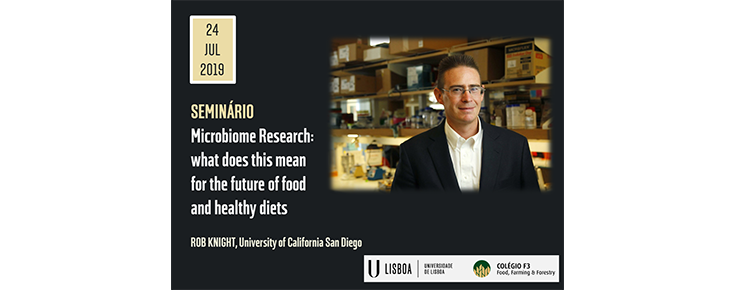
O Colégio Food, Farming and Forestry (F3) convidou Rob Knight, um dos mais galardoados especialistas mundiais no estudo dos microbiomas, para um Seminário sobre "Microbiome Research: what does this mean for the future of food and healthy diets".
Sumário: The human microbiome contains the majority of the cells in our bodies, and the vast majority of our genes. Advances in DNA sequencing are allowing us to, for the first time, grapple with this complexity and understand its impacts on our health. Recent research is demonstrating that these genes in the microbiome have a large impact on how our bodies process specific molecules, including many drugs, and that diet is one of the most powerful ways to reshape the microbiome. Although it is difficult to have a large impact with short-term diet (1 day to 2 weeks), long-term diet (6 months to one year) can have a profound impact in reshaping the microbiome. Because the microbiome is connected to many chronic diseases, from obesity to inflammatory bowel disease to diabetes to multiple sclerosis, that are increasing rapidly in incidence, but because its effects are highly personalized, the future of healthy diets is likely to be highly personalized and to depend on microbiome readouts that say what we should eat to keep our microbiome in a healthy state, or transform it into one.
Rob Knight é Professor na University of California, San Diego e cofundador do American Gut Project e do Earth Microbiome Project. É TED speaker e coautor dos best-sellers “Follow Your Gut: The Enormous Impact of Tiny Microbes” e “Dirt is Good: The Advantage of Germs for Your Child’s Developing Immune System”.
Evento de entrada livre, mediante inscrição prévia.




